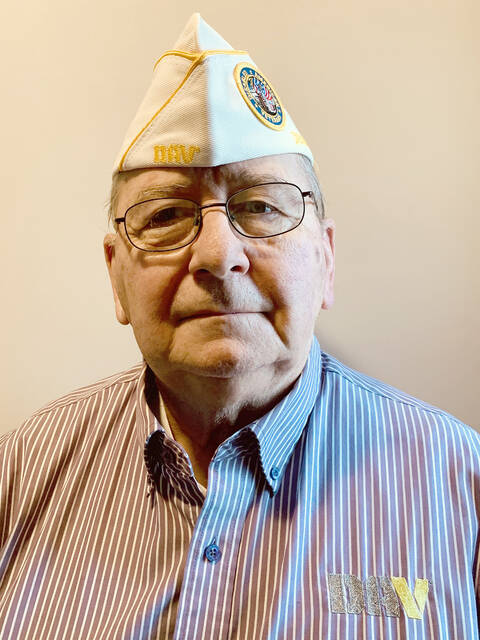On June 25, 2024, former Senator Elizabeth Dole spoke at a press conference on behalf of comprehensive legislation bearing her name designed to support veterans and their caregivers.
Her legislation is H.R. 8371, the Senator Elizabeth Dole 21st Century Veterans Healthcare and Benefits Improvement Act is a 315-page bill that addresses everything from assisted living services to caregiver benefit access to home-based care.
She was supported by twenty-four (24) veterans service organizations (VSOs) including the American Legion (AmL); the Disabled American Veterans (DAV); the Veterans of Foreign Wars (VFW); and the Vietnam Veterans of America (VVA).
These VSOs submitted a letter on May 24, 2024 to Representatives Michael Johnson and Hakeem Jeffries, along with Senators Chuck Schumer and Mitch McConnell.
The May 24, 2024 letter requested the elected officials “to put aside politics, work together in good faith to find a path forward through the House and the Senate, and enact this critical legislation before the Fourth of July.” This did not happen!
H.R. 8371 is a combination of several smaller legislative bills that have already been introduced in Congress. For example, some of the key provisions include: expanded home- and community-based veteran services; expansion of dental benefits to veterans with heart disease; and a VA pilot program to provide assisted living services to eligible veterans.
Executive Director of the Disabled American Veterans (DAV) Washington Headquarters Office Randy R. Reese, wrote: “The Senator Elizabeth Dole 21st Century Veterans Healthcare and Benefits Improvement Act addresses some of the most urgent needs of veterans and the people who care for them.”
“The bill has earned champions on both sides of the aisle and the impassioned support of a united veterans’ community,” the bill’s namesake, former Sen. Elizabeth Dole, said at the June 25, 2024 press briefing.
“I’m truly honored that this legislation bears my name,” former Senator Dole said, “but I’m even more grateful for the life-changing and life-saving measures it will bring to those who served their nation, and their caregivers.”
“The urgency of this legislation cannot be understated,” said Commander René Campos, Military Officers Association of America (MOAA) Senior Director of Government Relations. “Veterans and their families rely on these lifegiving and lifesaving provisions in this bill,” stated Senior Director of MOAA Campos.
My Opinion: This legislative bill (H.R. 8371) is a “two-edged sword” for the disabled veterans and the Department of Veterans Affairs (VA). This bill provides caregivers of our veterans everything they needed and everything that the disabled veterans earned by their military service.
Unfortunately, the “benefits” portion of the sword must be balanced by the “payment” portion of the sword. Congress has not allocated any specific “offset” funding for the provision of the benefits contained in H.R. 8371.
If this bill is enacted into law, the VA will be required to implement all the programs contained in the bill by using the existing Allocated Budget for 2025 passed in 2024. In my perspective this means that existing VA programs already scheduled for 2025 would have to be cut or curtailed.
Bipartisan legislation is certainly needed for this bill to be passed. But, as of July 3, 2024, only thirty-six (36) Congressman in the House have agreed to co-sponsor H.R. 8371. All co-sponsors are Republican and three (3) Representatives (Troy Balderson; Mike Carey; and Brad Wenstrup) are from the State of Ohio.
Compounding this lack of bipartisanship, of H.R. 8371, is that the Senate has not introduced a required companion bill for this legislation.
There are too many legislative obstacles facing H.R. 8371 for it to be enacted into law before the end of the 118th Congressional Session.
Specifically, the House must pass their version of the bill and then the Senate must introduce and pass their version of the bill. Then, the House and Senate must compromise to have one version approved and finally submitted to the President to sign and enacted into law.
H.R. 8371, which was introduced on May 14, 2024, encompassed several individual bills (such as the Provision of Dental Support for Veterans). The Senate had several individual bills (including Senate Bill 141) addressing the same vital caregiver issues.
Unfortunately, all the needed caregiver-type services were then lumped together into the massive 315-page proposed legislation in May. The biggest obstacle for H.R. 8371 is the lack of specific funding for this bill if it is enacted into law.
A better strategy for this massive bill would have been for the VSOs to focus on one or two of the individual bills, such as the pilot program for dental assistance to veterans or expanding home- and community-based veteran services.
These individual bills should be re-introduced during the 119th Session of Congress in January of 2025 and the VSOs must be united in their approach. The disabled veterans and their caregivers deserve better.
BioSketch: John Plahovinsak is a retired 32-year Army veteran, who served from 1967 to 1999. He is the Disabled American Veterans (DAV) Department of Ohio’s Hospital Chairman and Adjutant of DAV Chapter #63 (Clermont County). He can be contacted at: [email protected].

